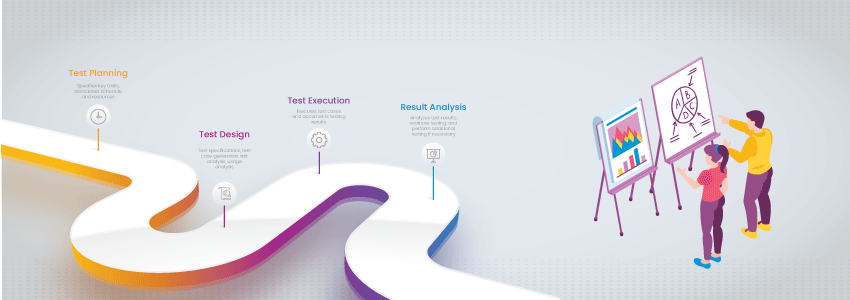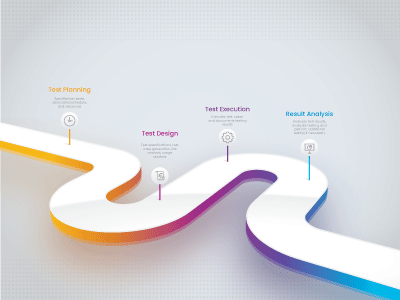End-to-end Testing
End-to-end Testing
Our DevOps services conduct end-to-end DevOps testing, which involves regression and functionality tests and validation of environment configuration to ensure every piece of information is passed between different software components within the system in a seamless and optimum way.


End-to-end Testing
Our DevOps services conduct end-to-end DevOps testing, which involves regression and functionality tests and validation of environment configuration to ensure every piece of information is passed between different software components within the system in a seamless and optimum way.
The age of DevOps demands reliable testing of an entire system from start to finish, and that is exactly what end-to-end testing is. The flow and integrity of information within a system between components are ensured by this process. End-to-end testing is carried out from the point of view of the end-user, and frameworks like Appium and Selenium automate the process.
End-to-end Testing Advantages
In the development process, both writing and regular execution of end-to-end tests offer multiple benefits.
- Regression Testing
- Requirements Validation
- Validation of Functionality
- Validation of Environment Configuration
By developing a series of end-to-end testing, when an organization can confirm that their requirements are met and each test is configured accurately, we can enjoy these advantages with the rest DevOps has to provide for Futuristic Software.
End-to-End tests and Development Team
A software solution, as a series of components, is present in every organization. While that solution might be feasible for surface unit tests but it leaves out several errors and bugs on each end. At this point, when an end-to-end test uncovers a bug, the solution to the bug does not only include the fix but also ensures that the big won’t return to the system with further future updates. Basically, end-to-end testing helps in pointing out the exact cause of the bug.
Integration vs End-to-End Tests
Integration Testing:
It begins in the initial stages of development, catches bugs earlier, tests run faster, is easy to integrate for daily builds, tests how internal modules function with external systems and tests a single process from third-party software.
End-to-End Testing:
it is done when a product is finished and ready for release, cannot be performed before near-completion of a product, tests run slower, tests the user experience from start to end, can be used for a single process as well as for multiple processes.
Up to you to finalize who wins the integration vs end to end testing battle for your choice.

